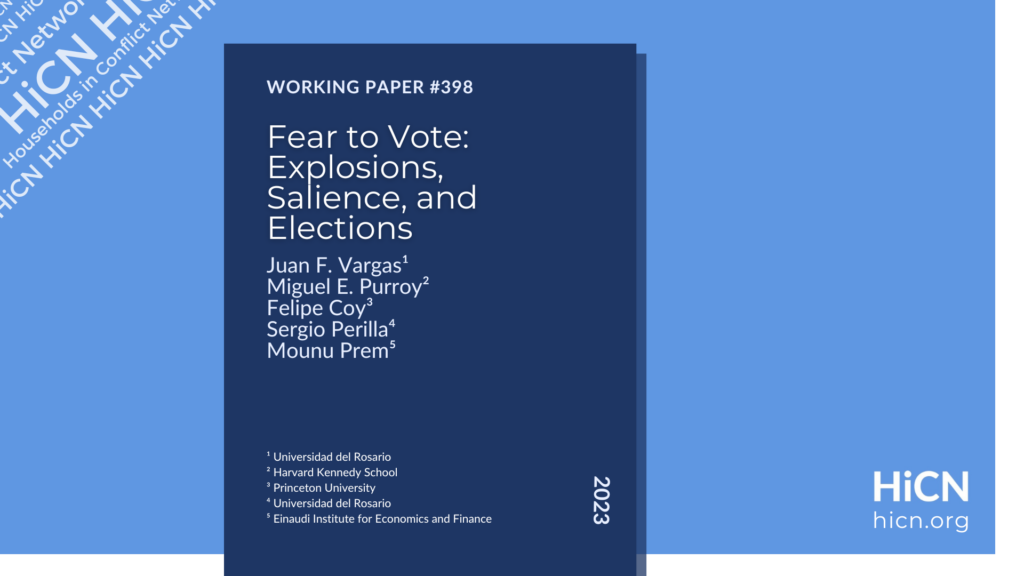
Criminal groups use violence strategically to manipulate the behavior of victims and bystanders. At the same time, violence is a stimulus that causes fear, which also shapes people’s reactions. Taking advantage of the randomness in the timing of antipersonnell and mine accidents in Colombia, as well as their coordinates relative to those of voting polls, we identify the effect of violence-induced fear (independent from intentions) on electoral behavior. Fortuitous landmine explosions reduce political participation. We further disentangle whether the type of fear caused by landmine explosions responds to an information channel (whereby people learn about the risk of future victimization) or by the salience of the explosion (which causes individuals to make impulsive decisions, driven by survival considerations), and show evidence in favor of the latter. While the turnout reduction takes place across the ideological spectrum, we document that the explosions induce a shift in the political preferences of individuals who do vote. These findings point to worrisome potential consequences for the consolidation of democracies in places affected by conflict.